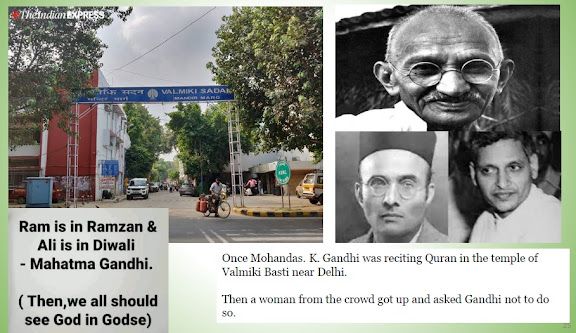The Bhagavad Gita – Article on Obscure Stanza by S. Sankaran
One
can encounter a few obscure or difficult stanzas in the Bhagavad Gita. The stanza in Chapter 2 – 69 is one such. The
text meaning of the stanza is:“That
which is night to all beings, in that the disciplined man wakes; that in which
all beings wake, is night to the Atman cognizing Muni.”
In
simple form, it can be translated as: What is day to ordinary creatures is
night to Yogi and what is night to ordinary creatures is day to Yogi. Mahabaratha
declares that man’s life is like a cloth woven by black and white threads. It
is akin to light and dark side of the life.
There
is another view. Day which is light, is akin to pleasure and night which is
darkness, is akin to pain. Hence the meaning can be interpreted to convey this:
What is pleasure to ordinary man, it is pain to Yogi. What is pain to ordinary
man, it is pleasure to yogi. Some creatures like owl will be awake during the
night unlike other creatures. Similarly amongst men, thieves will be awake
during the night time. Hence for such thieves, night is day and day is night.
The worldly pleasures are like darkness for yogis as the same is like light for
the ordinary creatures.
Gandhi’s
views on the verse are: Let us pray that we may see light when all around us
there is darkness. If we are brave, the whole world will be brave. If people
tell us that truth does not avail in the world, we should reply that it does.
The world’s night is our day and the world’s day is
Our
night.



Comments